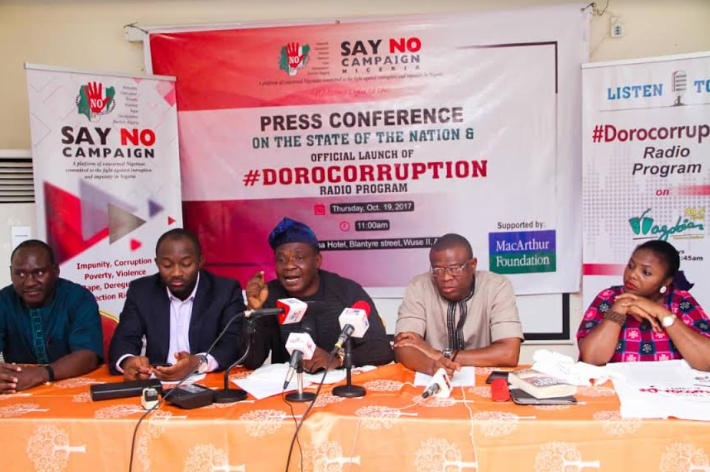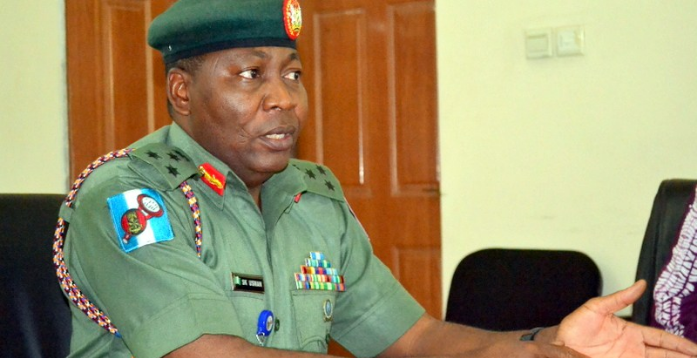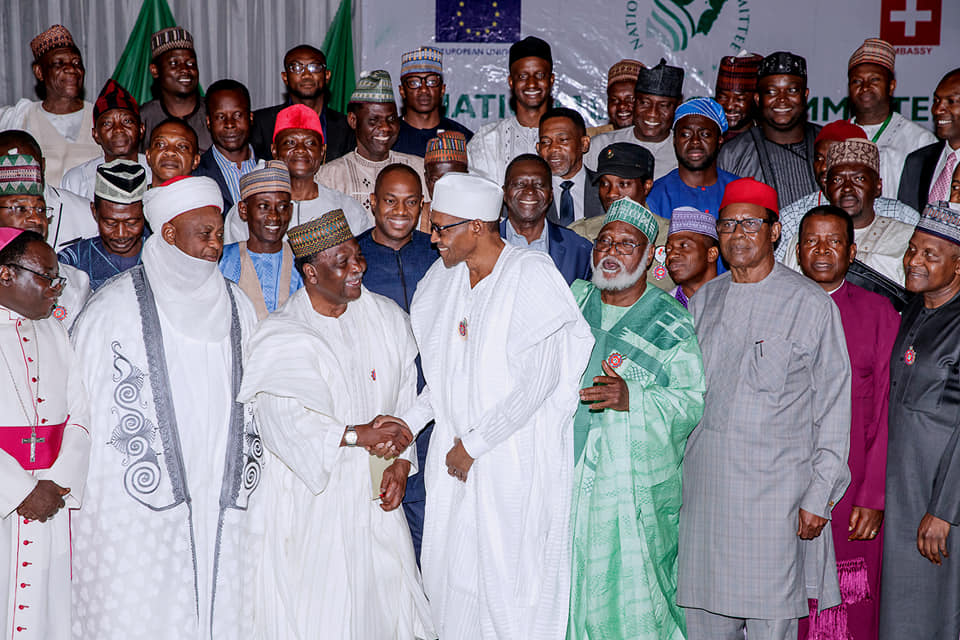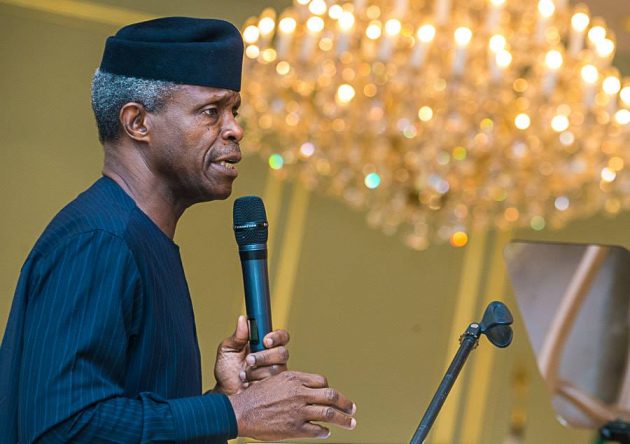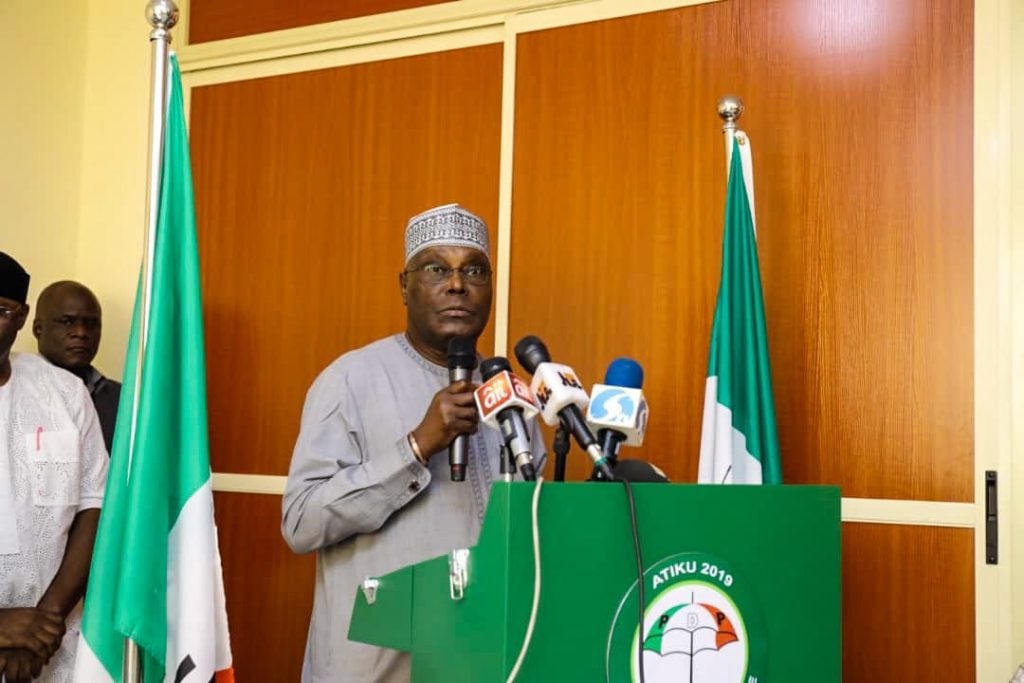Despite Nigeria’s low ranking on the global corruption perception index, a coalition of civil society organisations, say their contributory efforts, in the fight against corruption, is making the country a saner and more transparent place.
In a document sent to TheCable, the organisations; Say No Campaign, African Centre for Media and Information Literacy, Civil Society Legislative Advocacy Centre, Social Action and Lawyers Network Against Corruption, said the anti-corruption war may not be totally won yet, their various advocacy efforts have been on the rise— creating an atmosphere for accountability and transparency worth celebrating.
Corruption, according to the United Nations Office on Drugs and Crimes (UNODC), undermines social and economic development, and this affects education, health, justice, democracy, prosperity and development societies. Every year, $1 trillion is paid in bribes while an estimated $2.6 trillion are stolen annually through corruption, UNODC explained.
SAYING NO THROUGH RADIO
Advertisement
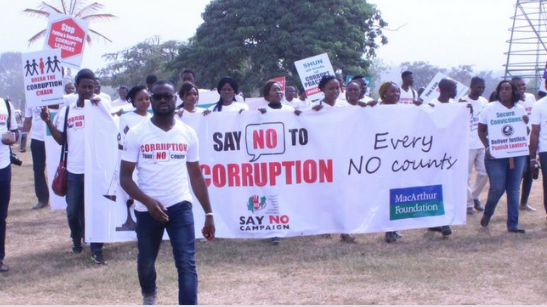
Through its Dorocorruption radio show, Say No Campaign said it has addressed corruption by engaging Nigerians at different communities on anti-corruption issues such as impunity, poverty, violence, and rigging. The CSO also holds town hall meetings, and uses electronic prints and social media platforms to sensitise and mobilise citizens.
Ezenwa Nwagu, the convener, said there is an erroneous notion that the fight against corruption is the sole responsibility of government but the citizens should also be involved.
“While the process of attitudinal change is continuous, the desire to adopt positive anti-corruption values is growing and evident in the interactions on our engagements,” Nwagu said.
Advertisement
AFRICMIL-SETTING THE RECORD STRAIGHT
In the wake of the whistleblower policy of the federal government, the African Centre for Media and Information Literacy (AFRICMIL) intervened in the cases of four civil servants who were reportedly victimised by their employers for exposing corruption in their places of work.
Two months later, President Muhammadu Buhari approved the whistleblowing policy, promising full protection and restitution for any informant against harassment, intimidation or victimisation. Ntia Thompsom, an assistant director with the department of technical cooperation in Africa, was, however, sacked after exposing an alleged $229,000 funds diversion.
AFRICMIL immediately swung into action, wrote letters to the attorney-general of the federation and the Police Service Commission, as well as the head of civil service. It did this in collaboration with the media. Through this action, Thompson, was restored. Another victimised whistleblower reinstated by AFRICMIL’s intervention is Aaron Kaase who worked with the Police Service Commission in Abuja.
Advertisement
The CSO says it is currently working to ensure the reinstatement of the two other victimised whistleblowers: Murtala Ibrahim who worked with the Federal Mortgage Bank of Nigeria and Joseph Akeju, a senior lecturer in Yaba College of Education, Lagos.
TRACKING ABANDONED PROJECTS IN THE NIGER DELTA
On its part, Social Action, a CSO which works on abandoned projects in the oil-rich Niger Delta has succeeded in getting the Economic and Financial Crime Commission (EFCC) to call to question politicians and contractors who abandon projects in the region. The CSO said contracts for delivery of public service have come to be seen as means of illicit settlements in the Niger Delta for political loyalty or ties. Government agencies in the region award contracts that run into billions to political loyalists and cronies and hardly do these projects take off before being roundly abandoned to the detriment of the people of the region. The massive corruption perpetrated through abandoned projects has become veritable threat to the region’s security and stability.
Steps are being embarked upon by the anti-graft agency to bring perpetrators to book.
Advertisement
MOUNTING PRESSURE ON GOVERNMENT
The Civil Society Legislative Advocacy Centre (CISLAC) has as its main focus, making government accessible, responsive and accountable to the citizens.
Advertisement
CISLAC provides informed analysis which is used to check on real governmental performance in the fight against corruption. The combination of public pressure, research and “behind-the-door” pressure keeps anti-corruption stakeholders aware of the issues to be addressed and challenges faced in the anti-corruption efforts in Nigeria.
CISLAC-run advocacy legal advisory centres (ALACs) which provide pro-bono legal advice to corruption victims is absolutely essential. The combination of public approach and cooperation with committed governmental institutions and individuals is also important for successful advocacy in the anti-corruption fight.
Advertisement
ENSURING LAW ON CORRUPTION WORKS
Lawyers Network Against Corruption (LAWNAC) is a group of volunteer lawyers, social engineers who seek to challenge corruption by providing the necessary legal support to various provisions of the law pertaining to the fight against corruption.
Advertisement
According to LAWNAC, there is a prevalent lack of interest in the war against corruption as a result of the lack of trust in the commitment of government to propagate the anti – corruption war to its logical conclusion. It is addressing this problem by providing a platform of citizens’ education and enlightenment; interrogating systems and processes; and ensuring the implementation of various provisions of the law on corruption. It mobilises lawyers and volunteers for this process, and has also taken up cases under the freedom of information (FOI) act, which hitherto are usually abandoned at the point of enforcement and implementation.
These CSOs are all supported by the MacArthur Foundation.
